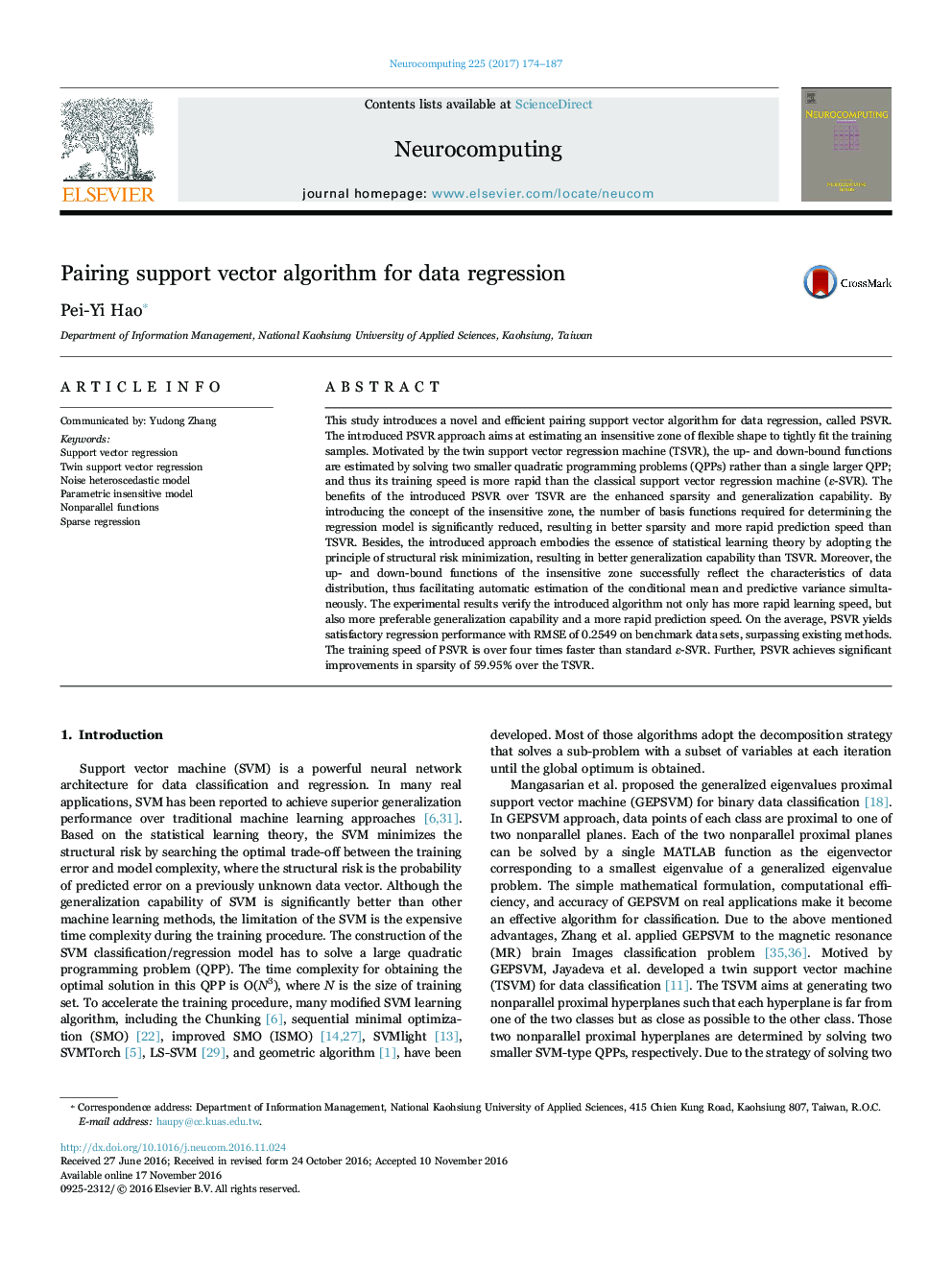| کد مقاله | کد نشریه | سال انتشار | مقاله انگلیسی | نسخه تمام متن |
|---|---|---|---|---|
| 4948075 | 1439602 | 2017 | 14 صفحه PDF | دانلود رایگان |
عنوان انگلیسی مقاله ISI
Pairing support vector algorithm for data regression
ترجمه فارسی عنوان
الگوریتم بردار پشتیبانی برای ادغام داده ها
دانلود مقاله + سفارش ترجمه
دانلود مقاله ISI انگلیسی
رایگان برای ایرانیان
کلمات کلیدی
رگرسیون بردار پشتیبانی، رگرسیون بردار حمایت دوقلو، مدل هشداردهنده نویز، مدل غیر حساس پارامتری، توابع غیر عادی، رگرسیون گسسته،
موضوعات مرتبط
مهندسی و علوم پایه
مهندسی کامپیوتر
هوش مصنوعی
چکیده انگلیسی
This study introduces a novel and efficient pairing support vector algorithm for data regression, called PSVR. The introduced PSVR approach aims at estimating an insensitive zone of flexible shape to tightly fit the training samples. Motivated by the twin support vector regression machine (TSVR), the up- and down-bound functions are estimated by solving two smaller quadratic programming problems (QPPs) rather than a single larger QPP; and thus its training speed is more rapid than the classical support vector regression machine (ε-SVR). The benefits of the introduced PSVR over TSVR are the enhanced sparsity and generalization capability. By introducing the concept of the insensitive zone, the number of basis functions required for determining the regression model is significantly reduced, resulting in better sparsity and more rapid prediction speed than TSVR. Besides, the introduced approach embodies the essence of statistical learning theory by adopting the principle of structural risk minimization, resulting in better generalization capability than TSVR. Moreover, the up- and down-bound functions of the insensitive zone successfully reflect the characteristics of data distribution, thus facilitating automatic estimation of the conditional mean and predictive variance simultaneously. The experimental results verify the introduced algorithm not only has more rapid learning speed, but also more preferable generalization capability and a more rapid prediction speed. On the average, PSVR yields satisfactory regression performance with RMSE of 0.2549 on benchmark data sets, surpassing existing methods. The training speed of PSVR is over four times faster than standard ε-SVR. Further, PSVR achieves significant improvements in sparsity of 59.95% over the TSVR.
ناشر
Database: Elsevier - ScienceDirect (ساینس دایرکت)
Journal: Neurocomputing - Volume 225, 15 February 2017, Pages 174-187
Journal: Neurocomputing - Volume 225, 15 February 2017, Pages 174-187
نویسندگان
Pei-Yi Hao,
